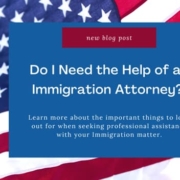Recently, a South Florida condominium association lost another court case in a long-running battle to keep its financial records from being inspected by a resident and her attorney.
Frankly, this is a case that should have never been filed as state law is clear. Nearly all records of a condominium or homeowner’s association are public records for residents of the association. It’s been in state law for more than a decade.
But in this case, it appears the leadership of the Boca View Condominium Association let their emotions and mistrust lead the way instead of the law.
The result?
The association is facing a nearly $300,000 bill for the resident’s legal fees.
Plus, at the hearing in October, according to the South Florida Sun-Sentinel, the “judge sanctioned Boca View and its attorneys for filing a federal lawsuit that was ‘factually and legally frivolous,’ and ‘filed in bad faith based on a legal theory with no reasonable chance of success, all for an improper purpose.’”
The attorneys at The Orlando Law Group specialize in association management laws and can help you or our association with records requests and much more.
What happened at Boca View?
According to the Sun-Sentinel, the case started in 2019 when one of the unit owners sent a written request to inspect and photograph the financial records of the association. When she showed up to inspect the records with her attorney, the association’s treasurer refused to turn over the records.
There was no explanation given as to why they were refused, but the assumption was the unit owner was asking for the records on behalf of another person, who had been refused records prior because they were not owners of the association anymore.
From there, the unit owner took all the appropriate steps, including filing a complaint with the Florida Department of Business and Professional Regulation, which ruled Boca View broke the law and the records were to be turned over.
In response, Boca View filed a complaint in state court to block the records from being released. The association lost that suit but appealed the decision. It then filed in federal court, claiming the circuit court ruling was in violation of the Contracts Clause of the U.S. Constitution.
Confused? It’s been quite the maze of legal actions to prevent a resident from looking at the financial records of their condo association.
What does the state law say?
The Orlando Law Group published a Complete Guide to Records Retention for Associations in 2022 that is very comprehensive. In that guide, all of the pertinent statutes about records are listed.
The statutes are very clear on financial records. Here’s what Florida Statute 720.303(4)(j) says:
The financial and accounting records of the association, kept according to good accounting practices. All financial and accounting records must be maintained for a period of at least 7 years. The financial and accounting records must include:
- Accurate, itemized, and detailed records of all receipts and expenditures.
- A current account and a periodic statement of the account for each member, designating the name and current address of each member who is obligated to pay assessments, the due date and amount of each assessment or other charge against the member, the date and amount of each payment on the account, and the balance due.
- All tax returns, financial statements, and financial reports of the association.
- Any other records that identify, measure, record, or communicate financial information.
According to our guide, “The official records of the Association may, based on Florida statute, be requested by a parcel owner for inspection or photocopying. Requests for records must be sent in written form by certified mail, return receipt requested.
“This request must be fulfilled within 10 business days after receipt by the Board or its designee of a written request. Associations can also comply with this requirement by having a copy of the official records of the association available for inspection or copying on the condominium property or association property, such as at the community clubhouse, or the association may offer the option of making the records available to a unit owner electronically via the Internet or by allowing the records to be viewed in electronic format on a computer screen and printed upon request.
“The official records of the Association may be requested and inspected by any association member or the authorized representative of such member at all reasonable times. This right includes the right to make or obtain copies, at the reasonable expense, if any, of the member.”
While there are exemptions to this statute, it’s clear what associations must do with public records: Let its residents inspect records.
Contracts Clause of the Constitution
There is a saying that anyone can sue anyone, but that’s not true. The courts can take action against frivolous lawsuits. And that’s what they did here.
After the lower court ruling, Boca View said the Constitution’s contracts clause should protect them. That clause basically says the government cannot pass laws that affect a contract between private parties.
Boca View said their covenants were written in 2004 and since the public records laws in question were passed in 2010, the association would be exempt as the state’s action affected a contract between private parties.
However, there was an even earlier statute that said the legislature could pass laws that amend laws governing non-profits at any time. This was passed before the Boca View covenants were developed.
Boca View hoped the federal court would throw out the state ruling, but the opposite happened.
There still is an appeal in the state court ruling being heard, but we believe that any association should be prepared to allow its residents to inspect records at any time to avoid costly lawsuits in this realm.
The attorneys at The Orlando Law Group can help association boards in Orlando, Waterford Lakes, Altamonte Springs, Winter Garden, Lake Nona, St. Cloud, Kissimmee, and throughout Central Florida.
If you have questions about anything discussed in this article or other legal matters, give our office a call at 407-512-4394 or fill out our online contact form to schedule a consultation to discuss your case. We have an office conveniently located at 12301 Lake Underhill Rd, Suite 213, Orlando, FL 32828, as well as offices in Seminole, Osceola and West Orange counties to assist you.
The articles on this blog are for informative purposes only and are no substitute for legal advice or an attorney-client relationship. If you are seeking legal advice, please contact our law firm directly.














